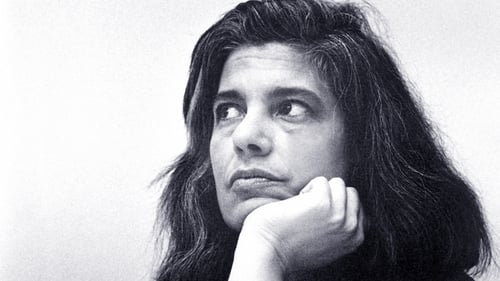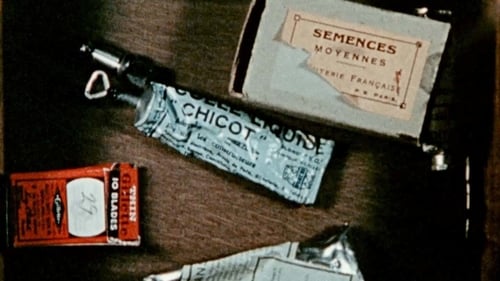Noël Burch
История
Noël Burch (born 1932) is an American film theorist and movie maker who moved to France at a young age. Burch is known for his contribution to terms commonly used by film scholars (such as institutional mode of representation (IMR)) and for his theories compiled in books such as Theory of Film Practice or La lucarne de L'Infini.

Himself
Масштабный взгляд на жизнь культурного критика, одного из самых острых и парадоксальных мыслителей второй половины XX века. Здесь все — от ее личной жизни до смелых, великолепных текстов об искусстве и политике.

Director
Details the catastrophic effects globalization has wrought on the ship, truck and train industries. We visit displaced farmers and villagers in Holland and Belgium, underpaid truck drivers in Los Angeles, seafarers aboard mega-ships shuttling between Asia and Europe, and factory workers in China, whose low wages are the fragile key to the whole puzzle. At a moment when collective bargaining rights are under attack in the United States, and China continues to bow to foreign pressures to prevent such rights from being granted at all, this film asks: Is capitalism the Trojan horse that turns on its inventors?

Self
A journey into contemporary French cinema through a series of exclusive interviews with the leading figures of GLBT French cinematography: André Téchiné, Catherine Corsini, Gaël Morel, Olivier Ducastel, Jacques Martineau and other old acquaintances of our film festival. This documentary offers an interesting insight into the official and non-official cinema from the point of view of gender identity. A look behind the scenes: discussing issues like censorship and self-censorship, women' cinema and misogyny, transvestism and homo-eroticism, cinema d'auteur and popular cinema (was the Nouvelle Vague homophobic?). From past to present, from Jacques Demy to François Ozon.

Writer

Director

Writer
A documentary that examines the films made by the victims of the Hollywood Blacklist and offers a radically different perspective on a key period in the history of American cinema.

Director
A documentary that examines the films made by the victims of the Hollywood Blacklist and offers a radically different perspective on a key period in the history of American cinema.

Writer
Noel Burch’s fascinating and well-made (if at times historically contestable) six-part BBC television series, about early silent cinema in Denmark, England, the Soviet Union, France, Germany, and the U.S., mixes beautiful clips of rare films with various social theories about their significance.

Director
Noel Burch’s fascinating and well-made (if at times historically contestable) six-part BBC television series, about early silent cinema in Denmark, England, the Soviet Union, France, Germany, and the U.S., mixes beautiful clips of rare films with various social theories about their significance.

Director
Herewith the strange case of Reginald Pepper, the acclaimed English “primitive” painter who, some say, lives secluded with his mother and two cats in Swindon and who, say others, suffers a mental handicap which accounts for the pinheaded figures in his paintings. A Sunday Times article shocked the art community by shedding doubts as to the authenticity of this untrained genius, and these doubts were compounded when students from the now defunct Swindon College of Art discovered, in attempting to make a documentary film on the subject, that Reginald Pepper had mysteriously disappeared! Enter filmmakers Noel Burch (Correction Please, or How We Got Into Pictures) and Christopher Mason, who piece together the story, after their own fashion, of this elusive painter of oversized cats and thereby illuminate a whole field of skepticism regarding the dubious nature of the term “primitive” as applied to contemporary painting.

Writer
Essay film about the suffragette movement.

Director
Essay film about the suffragette movement.

Idea
Hoping to make a fresh start, Léo, a jazz musician, takes up temporary residence with his friend Bony, a young writer who is struggling to get his work published. One evening, Léo strikes up an acquaintance with a woman taxi driver, Cora; in spite of her impulsive and moody temperament, he cannot help being attracted to her. On the spur of the moment, Cora invites Léo to make love to her. When Bony meets Cora, he too finds her irresistible, but he lacks Léo’s self-confidence to make his move. Cora is not a woman that any man can possess readily. She is like a wild animal, a creature that revels in its freedom. Will either Léo or Bony be able to tame her...?

Writer
Experimental essay in film history, associating very early archive material (circa 1909) and studio shot footage in an attempt to provide insights into the way in which "film language" developed during the silent era, with emphasis on the process by which spectators came to be increasingly "contained" with the space time of narrative.

Director
Experimental essay in film history, associating very early archive material (circa 1909) and studio shot footage in an attempt to provide insights into the way in which "film language" developed during the silent era, with emphasis on the process by which spectators came to be increasingly "contained" with the space time of narrative.

Self
During the summer of 1966 Jonas Mekas spent two months in Cassis, as a guest of Jerome Hill. Mekas visited him briefly again in 1967, with P. Adams Sitney. The footage of this film comes from those two visits. Later, after Jerome died, Mekas visited his Cassis home in 1974. Footage of that visit constitutes the epilogue of the film. Other people appear in the film, all friends of Jerome.

Director
Documentary about filmmaker Shirley Clarke which originally aired on the French television series “Cinéastes de notre temps”.

Director
A “Cinéastes de notre temps” series episode directed by french film critics Noël Burch and André S. Labarthe, originally aired in two parts.

Director
A “Cinéastes de notre temps” series episode directed by french film critics Noël Burch and Jean-André Fieschi, originally aired in two parts.

Editor
Speaking as scenes from Anatahan are shown, for which he directed, photographed, wrote, and provided voiceover narration, film director Josef von Sternberg takes the viewer on a fantastic filmmaking journey in this presentation of Cinéastes de notre temps: Josef von Sternberg - From Silence Comes Another.

Cinematography
A priest succumbs to the charms of his lovely cleaning lady and decides to find a husband when she finds herself pregnant with her works.

Producer
A priest succumbs to the charms of his lovely cleaning lady and decides to find a husband when she finds herself pregnant with her works.

Director
A peeping tom caught spying on a women's self-defense class is taken captive by the class leader. At first the class uses him as a training dummy, but his treatment at the hands of the ladies steadily becomes more dangerous and humiliating.

Editor
Short film made in Spain.

Assistant Director
Steph, Jean-Claude and Jacques work in a Parisian art shop, but they mainly work in the field of eroticism, which they conceive as a wide-ranging field of exercises and experiments.

Writer
Featuring a commentary by Noël Burch (in nonsense French), Recreation's rapid-fire montage of single-frame images of incredible density and intensity has been compared to contemporary Beat poetry.



